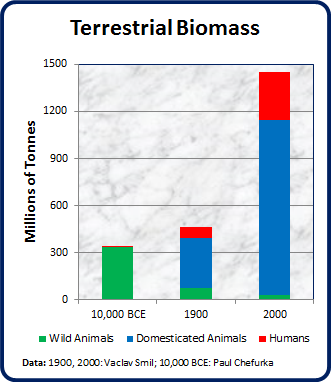Environment & Energy
Related: About this forumWorld population to hit 11bn in 2100 – with 70% chance of continuous rise
The world’s population is now odds-on to swell ever-higher for the rest of the century, posing grave challenges for food supplies, healthcare and social cohesion. A ground-breaking analysis released on Thursday shows there is a 70% chance that the number of people on the planet will rise continuously from 7bn today to 11bn in 2100.
...
Sub-saharan Africa is set to be by far the fastest growing region, with population rocketing from 1bn today to between 3.5bn and 5bn in 2100. Previously, the fall in fertility rates that began in the 1980s in many African countries was expected to continue but the most recent data shows this has not happened. In countries like Nigeria, the continent’s most populous nation, the decline has stalled completely with the average woman bearing six children. Nigeria’s population is expected to soar from 200m today to 900m by 2100.
The cause of the stalled fertility rate is two-fold, said Raftery: a failure to meet the need for contraception and a continued preference for large families. “The unmet need for contraception - at 25% of women - has not changed in for 20 years,” he said. The preference for large families is linked to lack of female education which limits women’s life choices, said Raftery. In Nigeria, 28% of girls still do not complete primary education.
...
But the new research narrows the future range to between 9.6bn and 12.3bn by 2100. This greatly increased certainty – 80% – allowed the researchers to be confident that global population would not peak any time during in the 21st century.
http://www.theguardian.com/environment/2014/sep/18/world-population-new-study-11bn-2100
Paper summary, and link for registered Science mag users: http://www.sciencemag.org/content/early/2014/09/17/science.1257469
sadoldgirl
(3,431 posts)GreenPartyVoter
(72,377 posts)tk2kewl
(18,133 posts)i just checked... world population the year i was born: ~3.3 billion
so to make it clear... we are now more than double that.
I don't mean to hijack this thread, but any one care to guess how old I am without googling population stats?
Systematic Chaos
(8,601 posts)We hit 4 billion around 1980, and 3 billion around 1960 I believe.
tk2kewl
(18,133 posts)SheilaT
(23,156 posts)Global warming is a direct result of that.
Such insane growth is simply unsustainable. At some point I think there's going to be a spectacular crash, and it won't be pretty.
As the article points out, that while lower fertility is strongly connected to women's education, it's both happening too slowly and is not really very efficient.
GliderGuider
(21,088 posts)It's possibly even less than 10 million, which was the approximate global population when agriculture began.
Getting from 10 billion to 10 million before the biosphere collapses is going to be "problematic".
SheilaT
(23,156 posts)more on the order of a billion people, but what our excess population has done to the environment probably means your number of 50 million is a bit closer.
Systematic Chaos
(8,601 posts)...of environmental protection. It assumes that we use biomass and renewables for much of our energy, but however much oil is necessary for plastics and technology. And we use, grow and fish whatever we want to.
But after all this damage we've done? I'd say closer to 3-5 million people, globally, at this point. Fuck, it's gonna take the oceans hundreds of years to bounce back, assuming they even can.
NYC_SKP
(68,644 posts)
GliderGuider
(21,088 posts)The problem shows up in their very first message though. Unfortunately, no animal species has ever maintained its numbers "in perpetual balance with nature." Animal populations tend to rise until they can't rise any more, then fall back dramatically. Our beloved intellect gives us no dispensation from this pattern. Not to mention that a world population of 500 million is wildly optimistic - especially at anything more than a bare subsistence level.
I hold this view:
The Ecological Footprint doesn't really seem intended as a measure of sustainability. Its main value is to give people with no exposure to ecology some sense that we are indeed over-exploiting our planet. (It also has the psychological advantage of feeling achievable with just a little work.) As a measure of sustainability, it is not helpful.
That leaves us with four estimates: two at 35 million, one of 10 million, and one of 7 million.
The central number of 35 million people is confirmed by two analyses using different data and assumptions. My conclusion is that this is probably the absolutely largest human population that could be considered sustainable. The realistic but similarly unachievable number is probably more in line with the bottom two estimates, somewhere below 10 million.
I think the lowest two estimates (Fowler 2008, and Fowler 2009) are as unrealistically high as all the others in this case, primarily because human intelligence and problem-solving ability makes our destructive impact on biodiversity a foregone conclusion. After all, we drove other species to extinction 40,000 years ago, when our total population was estimated to be under 1 million.
In fact, the analysis suggests that Homo sapiens is an inherently unsustainable species. This outcome seems virtually guaranteed by our neocortex, by the very intelligence that has enabled our rise to unprecedented dominance over our planet’s biosphere. Is intelligence an evolutionary blind alley? From the singular perspective of our own species, it quite probably is. If we are to find some greater meaning or deeper future for intelligence in the universe, we may be forced to look beyond ourselves and adopt a cosmic, rather than a human, perspective.
valerief
(53,235 posts)GliderGuider
(21,088 posts)
Add another 50% to both the human and domesticated animal biomass, and there is virtually no room left for any wild animals. Anywhere.
Note that the graphic is incorrectly titled - it should read "Terrestrial Zoomass", since it just represents fauna, not all biomass.
marym625
(17,997 posts)We're doomed if this continues. And it will
Thank you for the post